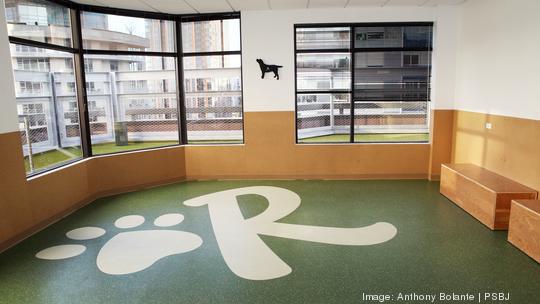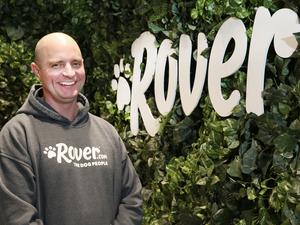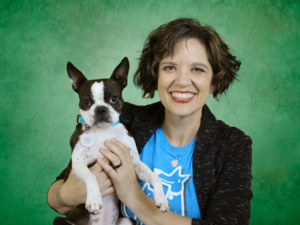
After laying off half its 500-person workforce due to the pandemic, Seattle-based pet care marketplace Rover Group Inc. (Nasdaq: ROVR) is on the cusp of returning to its former headcount.
The company currently has about 470 employees, and Rover co-founder and CEO Aaron Easterly said the company is hiring across the board, including roles like customer support, marketing and engineering.
Rover had about 280 employees a year ago.
"If you look at the growth we experienced over the past 12 months, it's crazy town," Easterly said. "Being able to invest more in tech, product and eventually new offerings is also important to us, so we've kind of ramped headcount fairly aggressively to meet the pace of the business."
In November, Easterly told the Business Journal Rover was going to put more of an emphasis on paid advertising despite seeing strong organic growth. He said toward the end of last year and the beginning of this year, the company has been making progress on new advertising channels. Easterly added that spending on channels like social and app advertising used to rival spending on search before the pandemic. The company limited social and app advertising during the pandemic but is turning those advertising channels back on now.
Rover, founded in 2011, has a marketplace that connects pet owners with sitters and walkers. In its first quarter 2022 earnings, released Monday, Rover reported first quarter revenue of $28 million, up from $12 million during the same period in 2021. The company expects to generate between $160 million and $180 million in revenue in 2022.
Rover went public on the Nasdaq in August through a merger with a special purpose acquisition company. Since hitting $14.68 in late September, Rover's stock has slid to $4.66 at closing Wednesday. Easterly said the company is focusing on the long term, and despite the stock troubles, Rover has a growing business and is well-funded.
As for future products Rover is eyeing, Easterly said the company hasn't made any firm decisions, but the pet wellness and health care industries are ripe for new technology. The company recently discontinued its in-home grooming efforts because the speciality skills required for the service made it hard to scale.
"We do think modern pet parents aspire to things such as easier online access, easier booking of appointments, easier access to medical records," Easterly said. "That's a part of where we see the evolution in the industry going."







